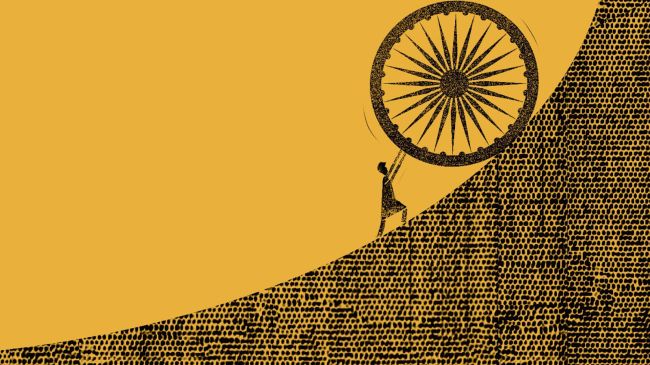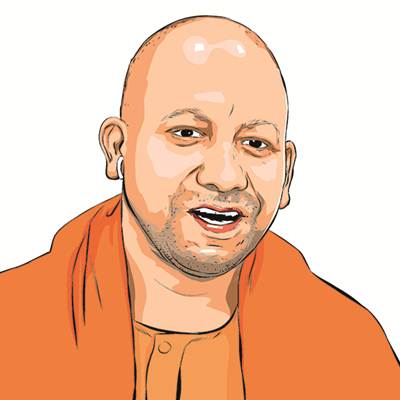Opinion 150 years on, Vande Mataram is still nation’s soul, evokes unity
This song reminds us that the motherland is not an abstraction; it is a living force. To revere her is among the highest acts of life. ‘Vande Mataram’ teaches us that patriotism is not a momentary emotion; it is a lifelong act of devotion and duty.
 It is regrettable that today, some self-proclaimed intellectuals question the sanctity of ‘Vande Mataram’. At times, they dismiss it as communal; at others, they seek to confine its universality within sectarian bounds.
It is regrettable that today, some self-proclaimed intellectuals question the sanctity of ‘Vande Mataram’. At times, they dismiss it as communal; at others, they seek to confine its universality within sectarian bounds. It is not merely a phrase; it is the eternal heartbeat of the Indian soul, echoing through the consciousness of this sacred land for over a century and a half. It is a divine mantra of national awakening, one that illuminated a nation bound in chains, rekindled identity amidst despair, infused courage into resistance, and ultimately gave form to freedom itself.
This song carries neither the lure of power nor the bias of caste, creed, or region. It embodies the collective consciousness of India, an awareness forged through millennia of civilisation, culture, and spiritual traditions. It reminds us that a nation is not merely a geographical territory, but a living, nurturing mother. Our reverence, devotion, and loyalty to her are what define our true identity. ‘Vande Mataram’ reflects the Indian philosophy of life, where patriotism is not confined to politics but manifests as devotion, discipline, and selfless service to the motherland.
The creation of ‘Vande Mataram’ marked a spiritual and cultural renaissance. At a time when British rule sought to suppress India’s cultural and religious consciousness, Bankim Chandra Chattopadhyay infused new life into the nation’s spirit by weaving this song into his novel Anandamath. When the monks of Anandamath sang ‘Vande Mataram’, it was not mere praise of the land; it was a clarion call for freedom. It was inspired by the Sanyasi Movement, the first organised expression of India’s self-confidence in the face of colonial rule. In 1875, when Chattopadhyay penned the words Sujalam suphalam/ Malayajashitalam/ Sasyashyamalam/ Mataram, he awakened the slumbering soul of India.
During the 1905 Bengal Partition movement, echoes of ‘Vande Mataram’ filled schools, meetings, rallies, and every street where the dream of freedom stirred. It became the final chant of revolutionaries as they faced the gallows. When Rabindranath Tagore sang it, the melody became a spiritual experience. It wove together religion and patriotism, devotion and duty, into one sacred stream of feeling. It inspired countless Indians to offer themselves in the yajna of freedom, whose flames illuminated the dawn of Independence.
The architects of independent India revered ‘Vande Mataram’ as a symbol of the nation’s soul. Today, it continues to evoke pride, reverence, and unity among Indians across generations. It is timeless, transcending the boundaries of era or geography, reflecting the divinity of Bharat Mata, who is the living embodiment of civilisation, culture, and eternal consciousness.
The 150th anniversary of ‘Vande Mataram’ is a moment for reflection. Are we truly living by the spirit that inspired countless patriots to lay down their lives? Have we imbued in our own conduct the same devotion, discipline, and dedication to our motherland?
It is regrettable that today, some self-proclaimed intellectuals question the sanctity of ‘Vande Mataram’. At times, they dismiss it as communal; at others, they seek to confine its universality within sectarian bounds. Such tendencies are born of ignorance and historical amnesia, and reflect not only a disregard for national sentiment but also a grave insult to India’s cultural unity and spiritual heritage.
Indeed, ‘Vande Mataram’ is not a song belonging to any one religion, sect, or community; it is the voice of the Indian soul itself. It is a hymn of reverence to the motherland. That is why, on January 24, 1950, the Constituent Assembly of India unanimously adopted ‘Vande Mataram’ as the national song. In the words of Prime Minister Narendra Modi, “This is a song that unites the nation with its eternal message of devotion and strength. For generations, millions of Indians have felt an immense surge of patriotism while singing ‘Vande Mataram’. Through its words, we have envisioned a vibrant, glorious, and self-confident India.”
Today, as India strides confidently on its path of self-reliance and development, the inspiration that guides this journey is the same spirit Chattopadhyay ignited a century and a half ago. Under the leadership of Prime Minister Modi, as the nation advances with the mantra of Ek Bharat, Shreshtha Bharat, ‘Vande Mataram’ continues to strengthen our sense of unity. The song reminds us that India’s true power lies in its diversity, in the harmony of its languages, cultures, and ways of life.
‘Vande Mataram’ is not merely an expression of salutation to the motherland; it is a pledge to protect her, to make her prosperous, and to uphold her pride. When a farmer toils in his field, a soldier guards the nation’s borders, a teacher shapes young minds, or a youth brings glory through innovation, ‘Vande Mataram’ finds its living expression in their actions. The younger generation must embrace the essence of this song, making it a part of their daily lives. Even in this era of rapid technological change, if love for the motherland and a sense of duty remain steadfast in our hearts, ‘Vande Mataram’ will continue to resonate eternally.
This song reminds us that the motherland is not an abstraction; it is a living force. To revere her is among the highest acts of life. ‘Vande Mataram’ teaches us that patriotism is not a momentary emotion; it is a lifelong act of devotion and duty.
The writer is Chief Minister of Uttar Pradesh






